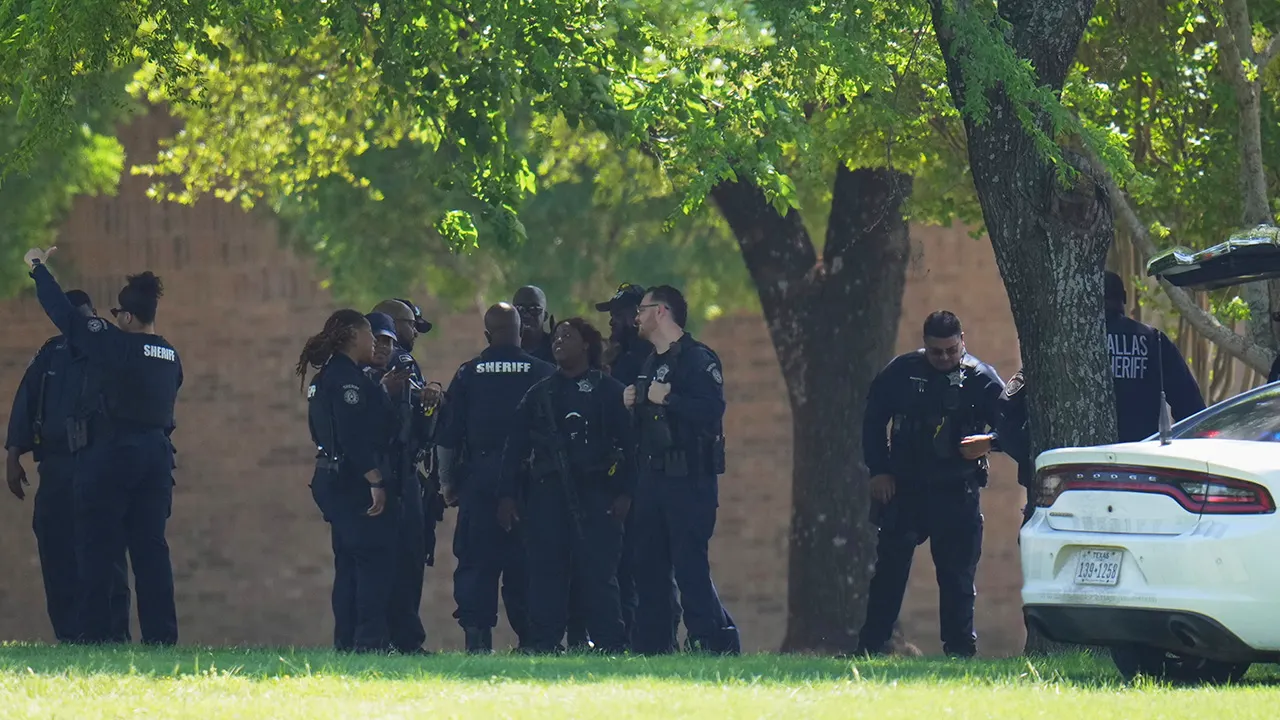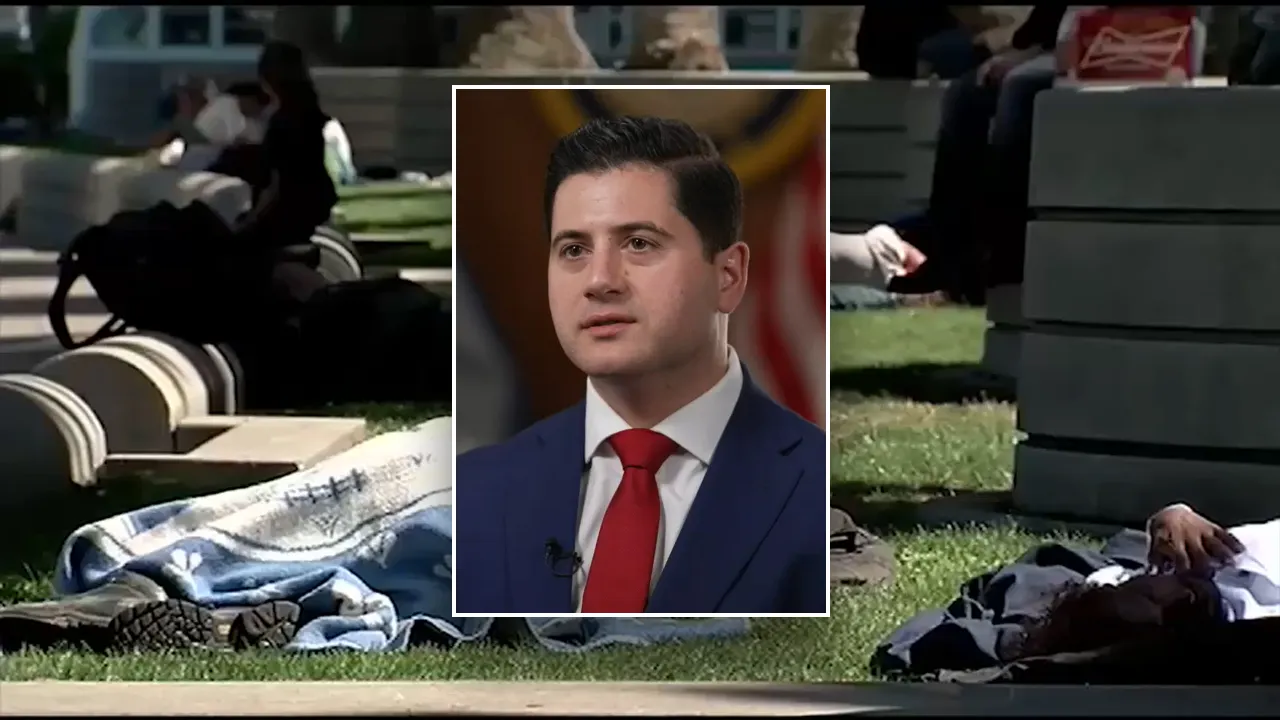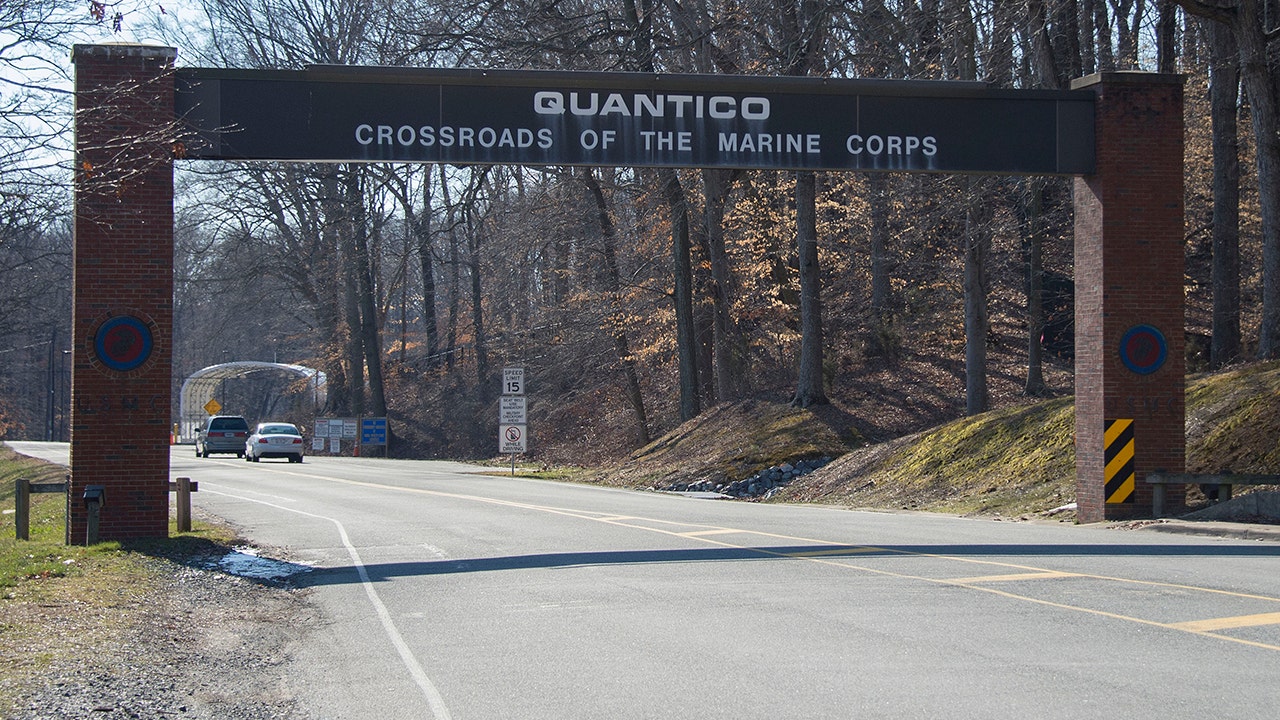In Detroit, a congressman’s holiday party devolved into chaos and a broken nose after demonstrators protesting the war in Gaza appeared with bullhorns.
In Fort Collins, Colo., the mayor abruptly ended a meeting during which protesters demanding a cease-fire in Gaza glued their hands to a wall.
And in places as disparate as a historic church in South Carolina and Radio City Music Hall in Manhattan, President Biden has been heckled and drowned out by demonstrators objecting to his support for Israel.
Protests over the Biden administration’s handling of the war are disrupting the activities of Democratic officials from city halls to Congress to the White House, complicating their ability to campaign — and, at times, govern — during a pivotal election year.
Mr. Biden successfully avoided a messy primary fight, facing no viable opposition within his party. But the Gaza conflict has stoked intraparty tensions nonetheless, raising Democratic concerns that a sustained movement protesting a war thousands of miles away could depress turnout at home in November.
“If you are now organizing people to walk away from supporting the president, then you are now de facto supporting and helping Trump,” Senator John Fetterman of Pennsylvania, a Democrat who has disappointed progressives with his unflinching support of Israel, said in an interview this past week. “If you’re going to play with fire that way, then you need to own the burn.”
Many supporters of the Palestinian cause argue that Mr. Biden must earn their votes — and that the death toll and suffering in Gaza should transcend concerns about electoral politics.
“With all of the political threats of Donald Trump in the horizon, it should tell you something about how deeply people feel about what’s happening,” said the Rev. Michael McBride, a founder of Black Church PAC who has pressed for a cease-fire.
The national effort to pressure U.S. leaders to limit their support for Israel has focused almost exclusively on Democrats, with former President Donald J. Trump rarely — if ever — attracting significant criticism from pro-Palestinian demonstrators at his home or public appearances. Mr. Trump has said little of substance about the conflict, other than that Israel should “finish up” the war.
Heated protests and tight security
Mr. Biden has increasingly taken a harder stance with Israel’s government, threatening on Thursday to condition future support on how it addresses civilian casualties and the humanitarian crisis in Gaza.
But he is still confronting fierce criticism.
At a White House gathering for Ramadan this past week, a Palestinian American doctor — one of the few Muslim community leaders who agreed to attend — walked out in protest after telling Mr. Biden that Israel’s looming ground invasion of Rafah would be a “blood bath and a massacre.”
Pro-Palestinian demonstrators have spent weeks protesting outside Secretary of State Antony J. Blinken’s house, spilling pitchers of fake blood and shouting at him and his family.
And even innocuous photos posted on social media by the White House — of children at the Easter Egg Roll or newly planted tulips — are flooded with comments accusing the administration of being complicit in mass killing and starvation in Gaza.
In recent weeks, Biden campaign officials have escalated their efforts to control access to his events. On the eve of Mr. Biden’s high-dollar Radio City fund-raiser last month, dozens of ticket buyers whom the Biden campaign flagged as potential Gaza demonstrators received notices from the campaign voiding their purchases, according to campaign officials and members of Jewish Voice for Peace, a progressive anti-Zionist group that has protested at Biden events.
“Unfortunately, we are unable to accommodate you at this time and have refunded all tickets associated with your email address,” the unsigned email read. “This decision is final.”
Carole Shreefter, a retired ultrasound technician from Upper Manhattan, paid $250 for a ticket near the back of the first mezzanine. A member of Jewish Voice for Peace, Ms. Shreefter, 78, said she had planned to disrupt the event by shouting at Mr. Biden and his two Democratic predecessors onstage about the war in Gaza.
She passed two checkpoints and was inside the theater’s lobby when she was told her seat had been changed. Ms. Shreefter said she had been redirected outdoors to what Biden officials called the “solutions tent.” There, she was told that she would not be allowed inside.
“I said, ‘What’s going on?’” Ms. Shreefter said in an interview. “‘I’ve been waiting here for hours in the rain. I have my ticket, everything is here.’”
Lauren Hitt, a Biden campaign spokeswoman, said the “solutions tent” had been staffed by officials from the Biden Victory Fund, an allied group, and from Radio City Music Hall. Its primary purpose, she said, was to help people with ticketing problems, not to remove potential troublemakers.
Some demonstrators did make it inside the hall, where they repeatedly interrupted Mr. Biden’s joint appearance with former Presidents Bill Clinton and Barack Obama.
One protester, Hannah Ryan, 33, a photographer from Brooklyn, said she had been flagged by the campaign, asked a battery of questions about people she knew and how she had acquired her ticket, and had then been allowed in. She shouted at Mr. Obama, who told her and other protesters, “You can’t just talk and not listen.”
Georgia Johnson, a registered Democrat from Manhattan, said she voted for Mr. Biden in 2020 but was reluctant to back his re-election bid unless the administration adopted a less supportive position toward Israel.
“A lot of people here, they’re tired of having to choose between what they feel is the lesser of two evils,” Ms. Johnson, 28, said as she joined the hundreds of protesters gathered outside the event. “What he’s doing doesn’t feel like the lesser of two evils to me. It feels like something very evil.”
‘I’ve met with them. I’ve taken their phone calls.’
Other elected Democrats have also struggled to avoid protesters.
In Santa Ana, Calif., Representative Lou Correa’s family and neighbors have grown increasingly frustrated with the loudspeaker, bullhorns and shouts from demonstrators who gather as early as 6:30 a.m. on his suburban street.
Mr. Correa, a Democrat who is often in Washington during the protests, asked the local City Council to support an emergency ordinance requiring activists demonstrating at private homes to remain 300 feet away. The proposal failed to pass.
“I’ve met with them — I’ve taken their phone calls, I respond to their emails, and now they say they’re at my house because they want to meet with me, that I won’t come out,” said Mr. Correa, who added that he supported negotiations to end the war and a two-state solution to the broader conflict. “Look, I’m an elected. I get it. But why is it in the neighborhood? Why is it the family? Why is it my neighbors? That’s what I don’t understand.”
Some of the most contentious clashes have taken place on deeply Democratic terrain. A recent City Council meeting in Berkeley, Calif., turned ugly, with protesters interrupting a Holocaust survivor at a meeting where members discussed a bill marking Holocaust Remembrance Day.
Representative Shri Thanedar, a Democrat from Michigan, said he had been shocked when more than two dozen attendees at his holiday party at a crowded restaurant in Detroit removed their jackets to reveal pro-Palestinian shirts. As they began chanting through a bullhorn, physical altercations broke out. One older woman was sent to a hospital with a broken nose.
“To see the deaths happening in Gaza is heartbreaking,” said Mr. Thanedar, who supports a “negotiated cease-fire” that would release Israeli hostages and end the military campaign. “But if they’re trying to draw attention to that, hurting elderly people isn’t necessarily going to help them get the support that they need.”
And in Danbury, Conn., the president of the City Council described being surprised by demonstrators demanding a cease-fire call from the city of roughly 90,000 people.
“In my mind, where are you addressing that concern?” said Peter Buzaid, the council president. “You would go to the senator’s office. You could go to the congressman’s office, you’d protest outside the White House. Right? You might go to the U.N. It’s not something that I thought would happen at our local council chambers.”
Mayor Jeni Arndt of Fort Collins said she recognized how emotionally fraught the war was, but she questioned what effect local action on the issue would have.
“I don’t think Antony Blinken’s going to be like, ‘Oh, the mayor of Fort Collins just said this,’” she said. “If it’s not impactful to the members of our community and it divides, I don’t think I should do that.”
Lowering the temperature
In some places, the protest tactics have been successful.
In Ann Arbor, Mich., a cadre of demonstrators had been coming to City Council meetings for years to demand a resolution denouncing Israel’s policy toward Palestinians. Six years ago, Mayor Christopher Taylor was shouted down while trying to read a gun violence awareness resolution by demonstrators demanding to know why he was not mentioning people being killed in Gaza.
Mr. Taylor, the mayor since 2014, has long argued that Israel and other foreign policy issues were not the city’s concern. But in the face of unending protests since the Hamas attack on Oct. 7, he and the council acquiesced and passed a resolution calling for a cease-fire. The temperature lowered, and most of the protesters stopped disrupting council meetings.
“Foreign policy is far from our remit, but special circumstances can arise,” Mr. Taylor said. “When community groups are in deep pain, we speak in support of those who are suffering.”
Even Senator Bernie Sanders of Vermont, a hero of progressives who broke with the administration to oppose giving additional military aid to Israel, faced interruptions from protesters on an overseas trip.
Mr. Sanders has encouraged the protesters in the U.S. to back Mr. Biden, arguing that Mr. Trump would be worse on the issue of Palestinian rights. But he also acknowledged the pain and frustration of the current moment.
“You have had hundreds of thousands of people marching in the streets in this country because they are absolutely outraged at the humanitarian disaster that is currently taking place in Gaza,” he said. “They are right.”
Julian Roberts-Grmela contributed reporting.






